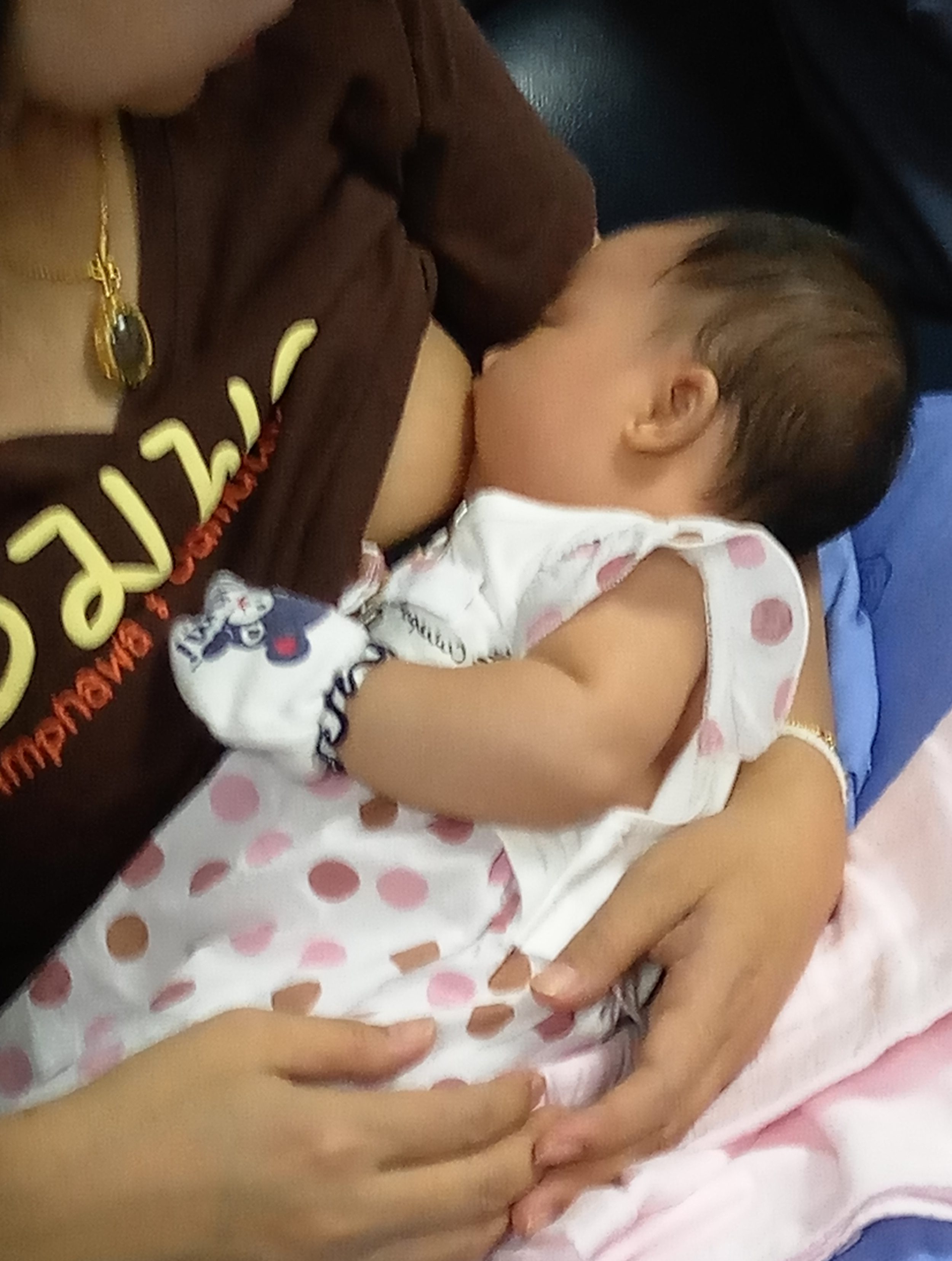รศ.นพ.ภาวิน พัวพรพงษ์
ความตั้งใจที่จะเลี้ยงลูกด้วยนมแม่ เป็นหนึ่งในปัจจัยที่สำคัญโดยหากมารดามีความตั้งใจหรือความคาดหวังจะเลี้ยงลูกด้วยนมแม่เป็นระยะเวลานาน พบว่าจะสามารถเลี้ยงลูกด้วยนมแม่ได้นานกว่า1-4 ความเครียด ความวิตกกังวลและอาการซึมเศร้าในระยะฝากครรภ์จะเป็นตัวทำนายความตั้งใจที่จะเลี้ยงลูกด้วยนมแม่5,6 นอกจากนี้ยังพบว่า ระดับการศึกษา7 ความใส่ใจต่อข้อแนะนำในการเลี้ยงลูกด้วยนมแม่อย่างเดียวหกเดือน8 ทัศนคติที่ดีต่อการเลี้ยงลูกด้วยนมแม่ ประวัติการเลี้ยงลูกด้วยนมแม่ในครรภ์ก่อน และการสนับสนุนจากสามีมีความสัมพันธ์ต่อความตั้งใจที่จะเลี้ยงลูกด้วยนมแม่ด้วย9 มีการศึกษาเปรียบเทียบระยะเวลาที่มารดาตั้งใจที่จะเลี้ยงลูกด้วยนมแม่กับระยะเวลาหลังคลอดที่มารดาเลี้ยงลูกด้วยนมแม่จริง พบว่าดัชนีมวลกายเป็นปัจจัยหนึ่งที่มีผลต่อความสำเร็จของการเลี้ยงลูกด้วยนมแม่จากการที่มารดาได้ตั้งใจไว้10 โดยมารดาที่อ้วนพบว่าจะเลี้ยงลูกด้วยนมแม่ได้สั้นกว่า
เอกสารอ้างอิง
- Balogun OO, Kobayashi S, Anigo KM, Ota E, Asakura K, Sasaki S. Factors Influencing Exclusive Breastfeeding in Early Infancy: A Prospective Study in North Central Nigeria. Matern Child Health J 2016;20:363-75.
- Forster DA, McLachlan HL, Lumley J. Factors associated with breastfeeding at six months postpartum in a group of Australian women. Int Breastfeed J 2006;1:18.
- Blyth RJ, Creedy DK, Dennis CL, et al. Breastfeeding duration in an Australian population: the influence of modifiable antenatal factors. J Hum Lact 2004;20:30-8.
- Gregory EF, Butz AM, Ghazarian SR, Gross SM, Johnson SB. Met Expectations and Satisfaction with Duration: A Patient-Centered Evaluation of Breastfeeding Outcomes in the Infant Feeding Practices Study II. J Hum Lact 2015.
- Insaf TZ, Fortner RT, Pekow P, Dole N, Markenson G, Chasan-Taber L. Prenatal stress, anxiety, and depressive symptoms as predictors of intention to breastfeed among Hispanic women. J Womens Health (Larchmt) 2011;20:1183-92.
- Fairlie TG, Gillman MW, Rich-Edwards J. High pregnancy-related anxiety and prenatal depressive symptoms as predictors of intention to breastfeed and breastfeeding initiation. J Womens Health (Larchmt) 2009;18:945-53.
- Nguyen PTK, Tran HT, Thai TTT, Foster K, Roberts CL, Marais BJ. Factors associated with breastfeeding intent among mothers of newborn babies in Da Nang, Viet Nam. Int Breastfeed J 2018;13:2.
- Wen LM, Baur LA, Rissel C, Alperstein G, Simpson JM. Intention to breastfeed and awareness of health recommendations: findings from first-time mothers in southwest Sydney, Australia. Int Breastfeed J 2009;4:9.
- Al-Akour NA, Khassawneh MY, Khader YS, Ababneh AA, Haddad AM. Factors affecting intention to breastfeed among Syrian and Jordanian mothers: a comparative cross-sectional study. Int Breastfeed J 2010;5:6.
- Claesson IM, Myrgard M, Wallberg M, Blomberg M. Pregnant women’s intention to breastfeed; their estimated extent and duration of the forthcoming breastfeeding in relation to the actual breastfeeding in the first year postpartum-A Swedish cohort study. Midwifery 2019;76:102-9.

